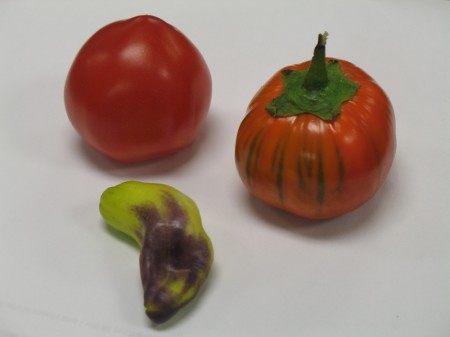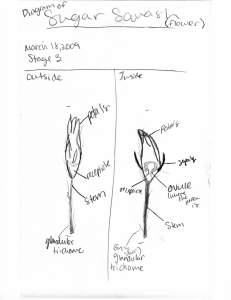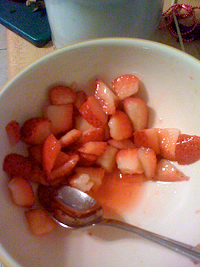Adam Ozimek stirred some controversy last month when he suggested that, whatever the educational merits, if the objective is to get inner-city kids to eat better, then we should be teaching them how to cook delicious meals using, cheaper and almost as nutritious, frozen vegetables, and not get into the slow-food, organic, locavore ethic of the Berkley School Lunch Initiative
Ozimek may have a point from a very strict utilitarian position, but he misses the big picture so badly that even if his fundamental argument was not wrong, which I think it probably is, it would be moot anyway.
First off, leaving aside the other educational merits of the program seems to miss the point. Humans, adolescents, education, these are all complex systems that interact in surprising ways. Students’ motivation to cook something they grew, for themselves, in the garden, is orders of magnitude different from the interest in cooking something out of the freezer section. And they miss everything they learn from gardening itself.
Using organic gardening methods and purchasing food, to the best of their ability, from local sources brings everyone’s attention to important environmental issues that situates students in the global ecosystem, which is something I know I spend a lot of time trying to accomplish. We’re not trying to make students aware of environmental issues because of some insidious “progressive” political agenda. The issues are there irregardless of the differing political approaches to dealing with them.
I also have a problem with the argument that frozen vegetables are the best way to deal with nutritional issues. From an immediate perspective Ozimek is probably right, and I’d support making sure frozen veges are an important part of the program. But the slightly bigger, slightly longer term, picture is that the program successfully increases awareness of healthy nutritional options. As long as student are also aware that frozen vegetables can also be a healthy substitute then students will use what’s within their means.
As an aside, although gardens are difficult or sometimes impossible in urban environments, their benefits are numerous, and there are wonderful innovations, like Global Buckets that reduce their intractability. A couple of Montessori kids designed Global Buckets as a means of impoverished communities to get fresh vegetables. Now that the a new set of kids are inspired by gardens in the school and this healthier food program, what will they come up with?





